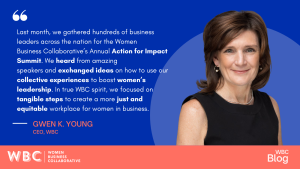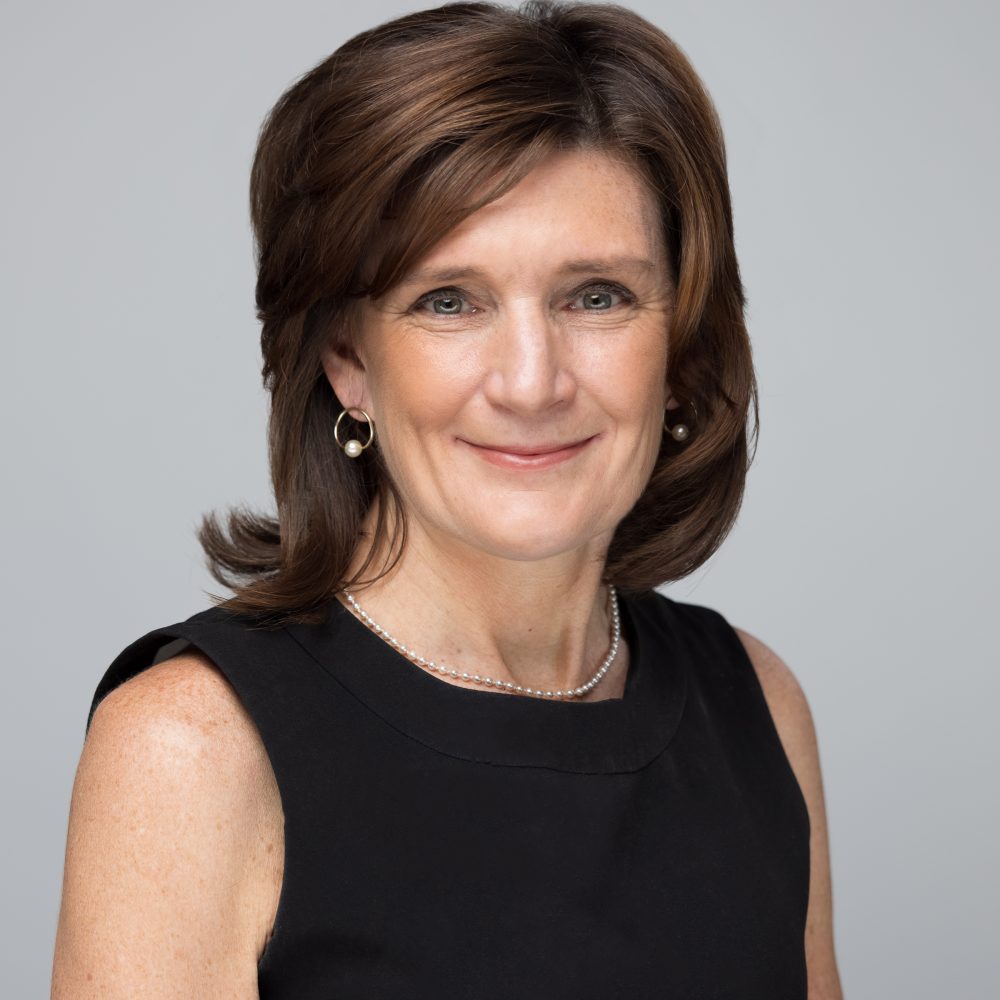
Last month, we gathered hundreds of business leaders across the nation for the Women Business Collaborative’s Annual Action for Impact Summit. We heard from amazing speakers and exchanged ideas on how to use our collective experiences to boost women’s leadership. In true WBC spirit, we focused on tangible steps to create a more just and equitable workplace for women in business.
The day would not have been complete without honoring those leading the way by taking tangible steps. It was a privilege to present the WBC 2024 CEO Excellence in Gender Equity and Diversity Awards and the WBC Trailblazer in Gender Equity and Diversity Awards.
Each of our awardees received this honor because they are changing the game by making our workplaces more equal and diverse, so we asked them what they felt were the most important lessons for others following in their footsteps. Here’s what a few of them had to say:
Lead with empathy, compassion, and curiosity. Charles Johnson, President at SodexoMagic encouraged attendees to come to each and every interaction with an open mind. “It boils down to a very simple philosophy for me. 1) Be empathetic. 2) Be compassionate. 3) Be willing to learn something a different way than what you may have been taught,” he said. “Sometimes we have to go out of our comfort zones to be a better leader….Do business not from a place of comfort but a place of empathy, a place of compassion, and a place of understanding… When everyone’s participating and everyone is doing their very best, the hard problems of this world, and the hard problems that our stakeholders hold us responsible for, will be solved.”

Create space for women—then help them grow. Dr. Ngozi Okonjo-Iweala, Director-General, World Trade Organization, rallied attendees to support women in trade agreements and in growth, challenging, “How do we get more of our trade agreements to be gendered? To have a specific look at how these agreements are impacting women, or whether there’s an additional thing we could add that would help women more.” In the trade space and beyond, Dr. Okonjo-Iweala, pushed us to think beyond just supporting the creation of resources for women and reinforce growth. She urged the question, “How to scale actions that scale activities that women are doing wherever we are? Because as I look at it there’s too much of piloting. And I really want us to reach millions, thousands and millions, and not hundreds.”
Community engagement starts with you. And, as Judy Marks, Chair, CEO and President of the Otis Worldwide Corporation, told attendees, the key to that community engagement and impact is leading with positivity and intention. “My call to action to everyone listening is to make a difference and do it in a positive way. You can be collaborative. You need to lead by example, whether it’s yourself, whether it’s your enterprise, you can make a difference and that will move us all ahead. And, you choose how you make that difference by how you show up every day. When you’re intentional, and you’re clear, and you articulate what you hope to achieve, you can be measured on it—which is important…your enterprise can be successful and I think the world can be a better place.”
Look inward to find power. This introspection is where Vernā Myers, Founder and President at The Vernā Myers Company encouraged attendees to start. “Do your personal work, look deeply,” she said. “Where have you been harmed? Where do you need to heal? What things do you have to do and where to keep yourself grounded?” Once you’ve done that, the next step is this: “Consider your privileges and use them,” continued Verna. “Privilege is not a bad word—we all have them. There are very few people who don’t have some privilege that they can work with. And with that privilege comes power and resources. Yeah, you don’t have to be the wealthiest, you don’t have to have the highest status, but just search around to see: Can you say something when you see anti-Semitism as a person who is not Jewish? Can you say something? And what would that be, and how would you do that?”
A4I: Turning Action into Impact
Whether starting from a place of empathy, carving out room for women, prioritizing positive community engagement, or finding your power by looking inward, we hope you can learn from this advice and take one small step today to create a more equitable workplace. To learn more, you can view our full conversations with these leaders and other fascinating conversations from the summit on the WBC website.
We can achieve remarkable things as individuals, but we are even stronger when we come together. The Action for Impact summit showed the true power of our collective insights and leadership. Stay tuned for more exciting events and learning opportunities. In the meantime, let’s celebrate the progress we’ve made, acknowledge the work still to be done, and keep pushing towards equal Position, Pay, and Power for all women.



